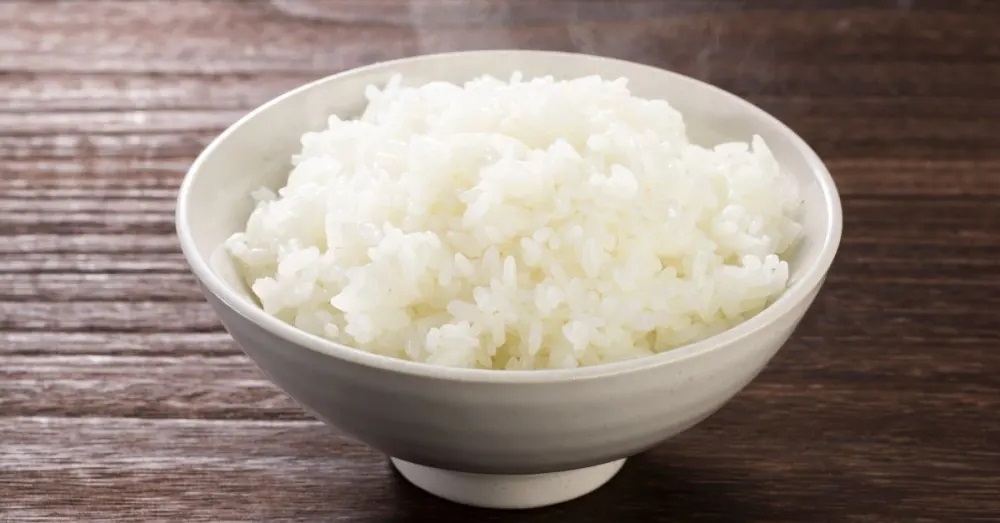Like all carbohydrate-containing foods, rice can make you fat if you make it a significant proportion of calories per day. However, rice is a versatile food that can fit into any diet as long as it’s eaten in moderation.
Numerous studies and health experts have shown that rice doesn’t cause weight gain or provide advantages or disadvantages over other grains.
But this article will help you understand how rice can be fat driven so you can adjust your diet accordingly!

Table of Contents
Types of Rice and calories distribution
Most people are familiar with a cup of white rice containing about 200 calories, but they may not know how many calories are in other varieties. Here’s a breakdown:
- White rice, long-grain (1 cup): 204 calories
- Brown rice (1 cup): 218 calories
- Wild rice (½ cup): 155 calories
- Basmati (1 cup): 203
- Jasmine (½ cup): 98
- Short-grain (½ cup): 130
A serving of cooked rice contains about 150 calories.
A serving of cooked rice contains about 150 calories. Don’t worry—the number doesn’t sound so high when you consider that 1/2 cup of rice is not a lot of food.
One serving is a small bowl, with only five servings in one bag! Rice isn’t like chips or cookies, where you can eat it until your stomach feels full.
You’ll know when you’re done eating because the bag will be empty, and your tummy won’t feel fuller than before (unless you overate butter).
Brown rice contains about 216 calories per cup.
Brown rice is also a whole grain, which contains all three parts of the grain—the bran, germ, and endosperm.
The germ is what grows into a new plant when it’s planted in soil. The bran is the outer layer of the kernel, which contains fiber and nutrients. And finally, the endosperm is where most of the starch and carbohydrates are stored.
Brown rice has more fiber than white rice does (1 gram per serving compared to 0 grams) but less protein and minerals like magnesium (22% DV), manganese (18% DV), selenium (13% DV), and phosphorus (8% DV).
Brown rice’s fiber helps you feel fuller and thereby eat less. This can help you lose weight.
That’s right! Fibrous foods like brown rice fill you up for longer, making you less likely to overeat. This can help you lose weight and keep it off. Brown rice is also a good source of fiber, which can help prevent constipation and other digestive issues that could result from not eating enough fiber.
- You can eat more calories without feeling full: Fiber helps slow digestion, making it easier to handle satisfied without overdoing it. Studies show that people who consume more fiber are less likely to gain weight than those who don’t.[1]
- Fiber helps you feel full longer: The extra time spent digesting food means your body has more time to register satiety signals with its brain before sending out any hunger pangs—so your stomach knows when it should stop requesting food while your mind is still thinking about dinner plans with friends.[2]
Consuming rice without exercise can lead to weight gain.
Rice is an unwise choice if you’re trying to cut back on carbs. Rice is a starch and a complex carbohydrate, which means it has more calories than other foods. It also requires a lot of insulin to break down into sugar in your bloodstream so your body can use it for energy.
If you replace one serving of rice with an equal amount of bulgur, sweet potatoes or oatmeal — all whole grains — you can save up to 200 calories per day while still getting the same amount (or more) of nutrients from your food.
Eat less calories than you need to maintain your weight
If you’re trying to lose weight and don’t have much time for exercise or cooking, using brown rice as your primary carbohydrate source might be a good idea.
Brown rice is still considered “good” regarding carbohydrates since it has more fiber than white rice (which helps keep you feeling fuller longer).
However, eating too many grains can cause blood sugar levels to spike quickly—and when those levels drop back down again after eating something high on the glycemic index like white bread or potatoes—you’ll feel tired and hungry again soon after eating them (especially if you’re following a low-carb diet).
A diet rich in whole grains may help you lose weight, but it’s not a magic bullet.
Whole grains contain more fiber, vitamins, minerals and other nutrients than refined grains. The fiber in whole grains can help you feel full longer, making it easier for you to resist tempting junk food.
Whole grains are also a good source of complex carbohydrates that can help fuel your body with energy throughout the day.
Fiber-rich foods such as whole grains may lower your risk of heart disease and type 2 diabetes because they help keep blood sugar levels steady by slowing digestion. They also have been linked to lower cholesterol levels.
Conclusion
So, the answer is no. Rice doesn’t make you fat. It all depends on your eating habits and how much you eat in a day. To maintain good health, you should eat it in moderation and other nutritious foods like fruits and vegetables because they will help keep your weight while still providing sufficient nutrients for your body.